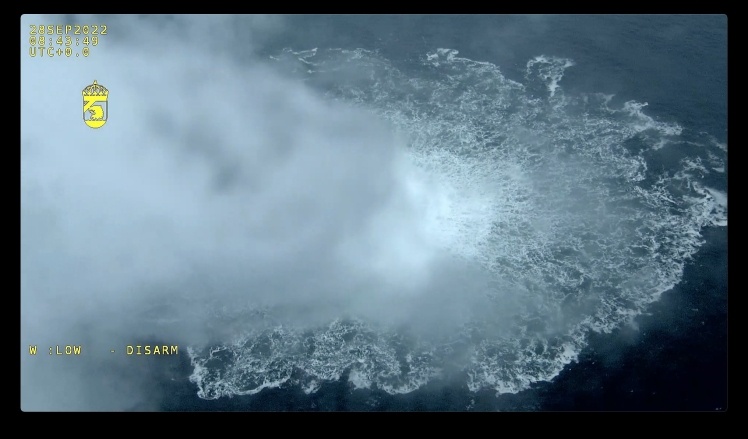The main version of the investigation is that a state entity is involved in the explosions at the Nord Streams.
Swedish prosecutor Mats Jungqvist, who is investigating the sabotage, said this on April 6, Reuters cites.
Jungqvist informed that it could not be ruled out that an "independent group of actors" was behind the bombings, rather than a state actor, but still unlikely.
"There are certain companies that have special tasks, that is, theoretically they could do it. We do not exclude anything, but the fact that a state entity is directly or at least indirectly behind this is, of course, our main version, given all the circumstances," the prosecutor noted.
An explosion on the Nord Stream in Swedish waters on September 4, 2022.
Getty Images / «Babel'»
The explosion in the Swedish zone occurred at a depth of 80 meters, which, according to the Swedish prosecutorʼs office, complicated the investigation.
"We believe that it will be quite difficult to establish who did it. The people who did this probably knew that they would leave evidence and made sure that the evidence pointed in more than one direction," the prosecutor added.
Investigators have already identified the type of explosive used in the sabotage, and noted that this rules out "a very large number of actors." The investigation is ongoing.
Nord Stream 1 and Nord Stream 2 consist of two pipes each. In September 2022, three pipes ruptured due to unexplained explosions, only one remained intact.
- In September 2022, a decrease in pressure began to be recorded on the "Nord Streams". There were four gas leaks on the pipelines. The countries of the EU, the USA and NATO believe that the pipelines were sabotaged. Seismologists said that they recorded underwater explosions in the leakage zones. Swedish special services found confirmation of sabotage.
- In March 2023, the American publication The New York Times, citing sources and intelligence data, wrote that the explosions on the Russian gas pipelines Nord Stream and Nord Stream 2 could have been carried out by a pro-Ukrainian group of "Putinʼs opponents". It allegedly included Russians and Ukrainians. The British newspaper The Times wrote that Western intelligence agencies have long known the name of the Ukrainian who allegedly financed the sabotage of the Nord Streams, but decided not to reveal his identity in order to protect Ukraine.
